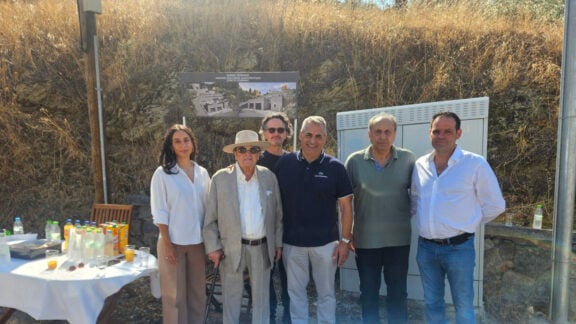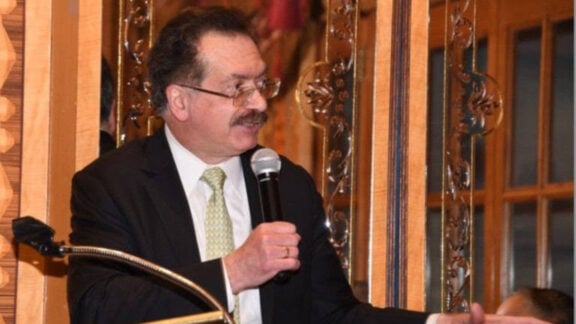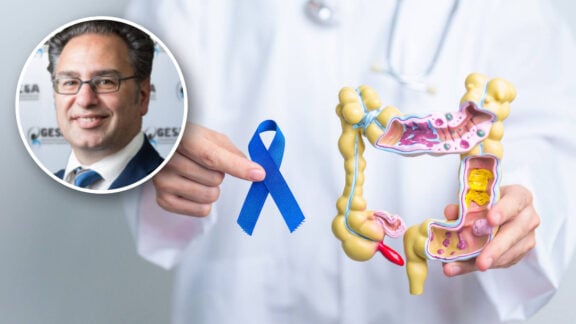When Jo Traikos waited to take her son Josh, 11, home after a routine 25-minute operation, she did not expect to be confronted with the nightmare no parent should have to face – the grim news from the surgeon that something had gone wrong and he needed to be transported immediately to the intensive care at Monash Children’s Hospital.
What resulted while harrowing for the family was to force a change in medical procedures that will prevent other children from going through what Josh went through. His case has drawn attention around the world.
The day had started normally enough, Harry, Josh’s dad, and his sister, Stephania, drove him and his mother to the private hospital where the procedure was to take place.
Because of COVID restrictions, only one parent, Mrs Traikos, could be with the boy in the hospital. So Stephania, then 15, went home with her father to bake a chocolate cake and decorate her brother’s room to welcome him back later in the afternoon. Then Mr Traikos got the call from the hospital and left in a hurry without saying anything to worry his daughter.
READ MORE: COVID-19 seems to be everywhere, so how do we manage this in our home?
Josh had gone under an anaesthetic cocktail of six drugs, including Propofol, that were routinely used without a problem many times before, but Josh reacted differently and went into an anaphylactic shock late in the procedure. His body started shutting down and the medical crew had to apply cardiac compressions to try to revive him.
Mrs Traikos heard “Code Blue in Theatre Two” which was where her son lay. Under procedures determined by the Paediatric Infant Perinatal Emergency Retrieval (PIPER) protocols, Josh was put under an induced coma, where Propofol was one of the drugs administered as he was transferred to Monash Children’s Hospital and then again when he lay in the intensive care unit.
“At first, the doctors thought it could be COVID-19 that was causing this because no one really understood COVID at the time,” Mrs Traikos said. “Everyone was working as hard as they could on Josh to diagnose the problem.”
“The head of Pediatrics came to tell us, (her husband had joined her at the Monash): ‘We are doing the best that we can, but it is not looking good and you have to prepare for the worst.’ He said that if he did recover he would probably have damage to his heart, liver or brain.

“It was a parent’s worst nightmare.” Mrs Traikos said.
After nearly six hours of trying different approaches, the doctors decided to change the drugs that were inducing his coma and the Josh’s condition began to improve dramatically. He began to respond to his parents’ voices and the crisis was averted.
The boy lay in intensive care for another two days and after a few more days in hospital, he was back home.
“In hospital they did a lot of tests, but they found no damage to his organs. They called him the ‘Comeback Kid’ and his doctors said that his lungs had pulled him through,” said Mrs Traikos. A passionate footballer who turned out for Nunawading City FC under-11’s, Josh’s fitness had helped to see him through the crisis.
But things were not really over yet. Mr and Mrs Traikos wanted to know what had happened to their son and in finding out could prevent it from happening to other children.
Josh went through months of testing to see which drug of the six (including Propofol) in the anaesthetic that was given to him was the cause.
Several tests were conducted for each drug, with a two/three-week break between each test.
“They started with skin tests but each test was negative. Then the tests went under the skin and he was administered the drug orally and then intravenously, which was more frightening,” Mrs Traikos said. “With each test we held our breath, by the second-last test he still did not react. The Propofol was the last drug remaining. Ultimately it was the parents’ decision to go through with it but the Director of the Department of Anaesthesia at the Royal Children’s Hospital, Dr Ian McKenzie, strongly advised against it.”
The upshot of the testing was that Josh was the child in 10 million that reacted badly to Propofol and no one in the world had reacted as badly as he had. His was a case that drew attention of the medical fraternity around the world.
Harry and Jo Traikos said the medical staff handling Josh’s case were bound by PIPER protocols that required them to treat a young patient in crisis with anaesthetics that included Propofol. It was, Mrs Traikos said, a requirement that the medical fraternity had been questioning before Josh’s case had so dramatically illustrated their concerns.
Harry, a scientist himself who was intimately involved in the doctors’ discussions and Jo, a media consultant, mobilised their resources to bring about changes in the PIPER protocols that have been adopted.
“Sometimes it is the parents’ voice that can force changes in processes where every other option to be heard may fail. It is the ‘Power of the Heart’. We had decided that we would be like a dog with a bone over this so that no other child will go through this gain.”
“What happened to Josh was not the fault of anyone. We really appreciate the efforts of the doctors, and surgeons and we really need to draw attention to the unsung heroes, the anaesthetists who keep the patient safe while the surgeons operate but when something goes wrong on the operating table, the anaesthetist takes charge.”
Josh and his parents’ efforts have brought on the much-needed change in hospital and patient transfer protocols and his case is studied at the Australian and New Zealand College of Anaesthetists.
“Student anaesthetists are now made aware that there are alternatives to drugs like Propofol,” said Mrs Traikos.










